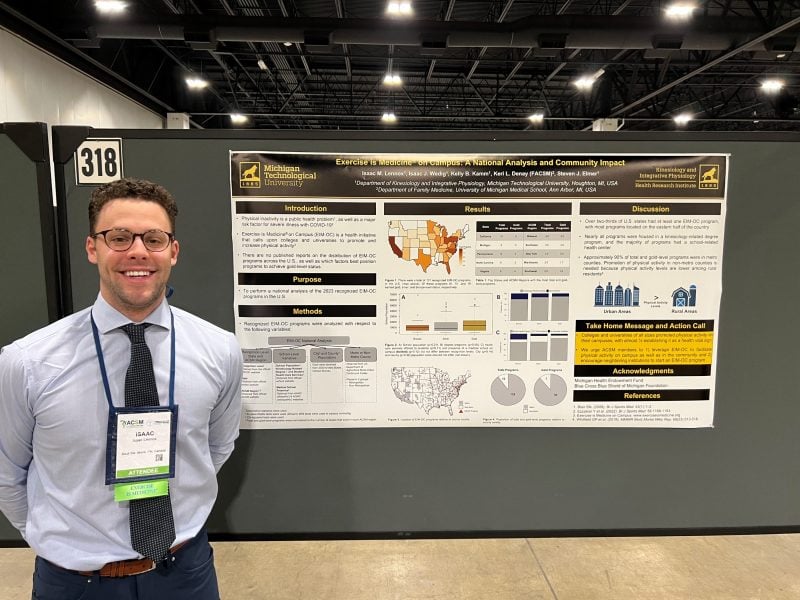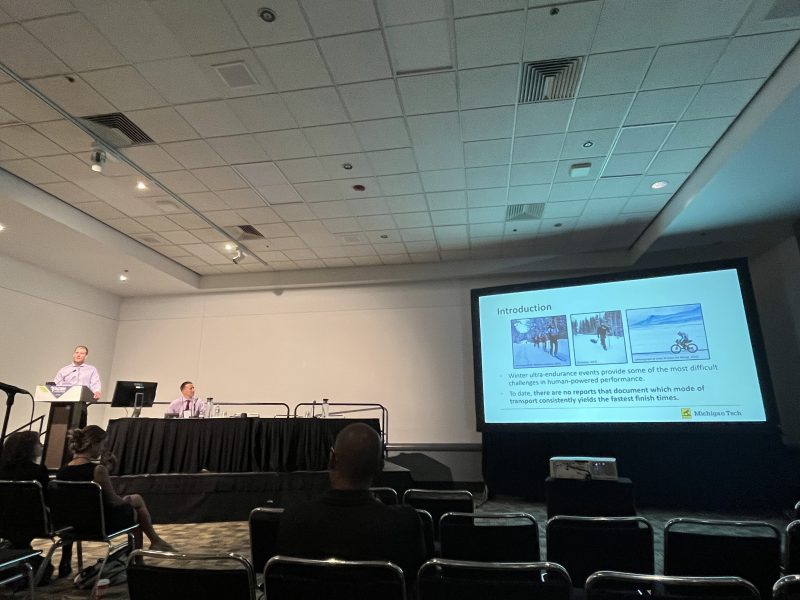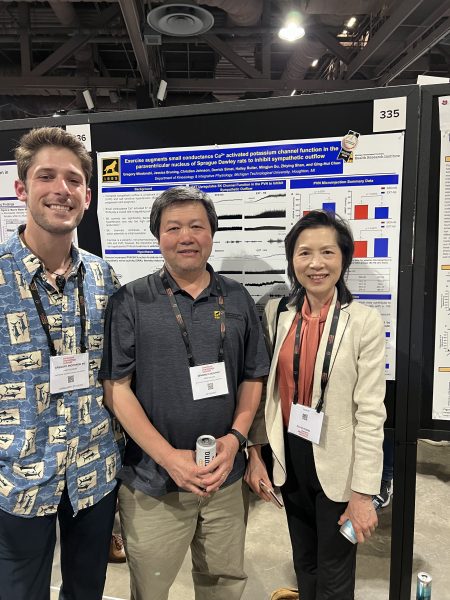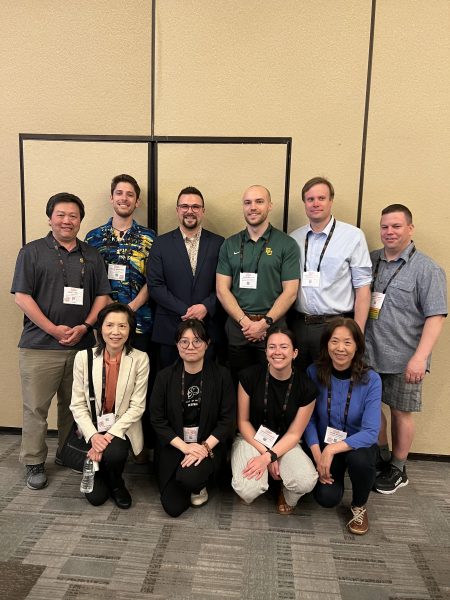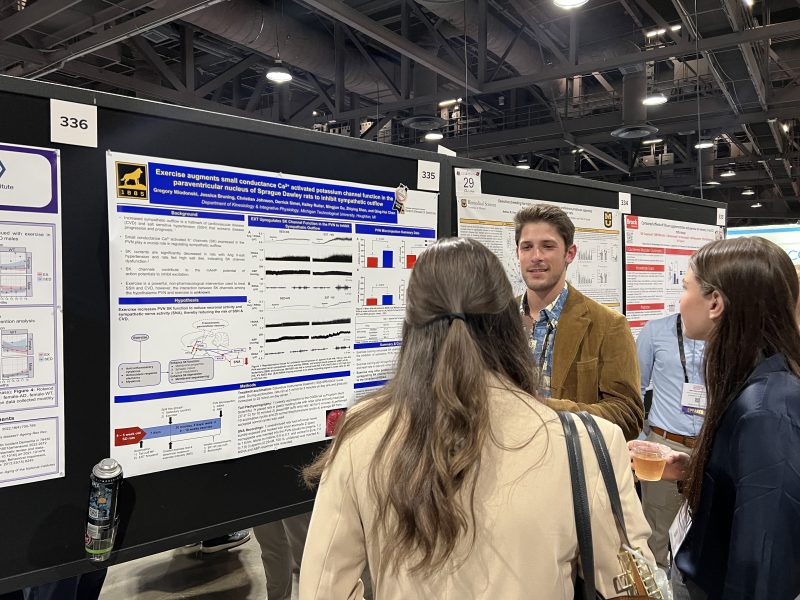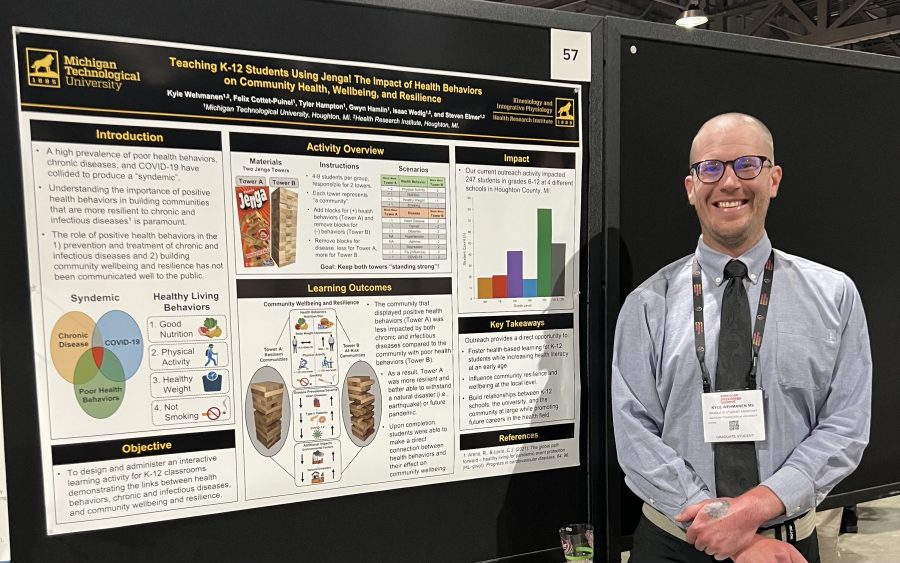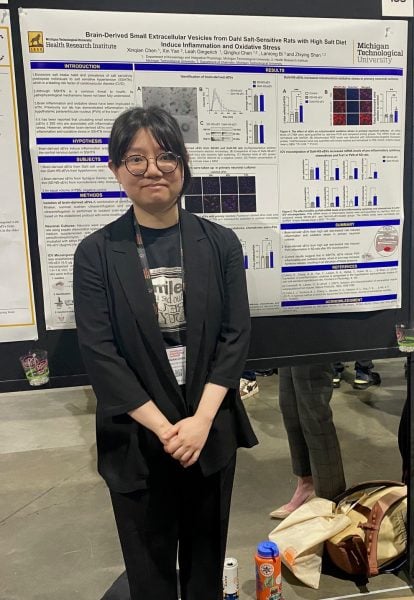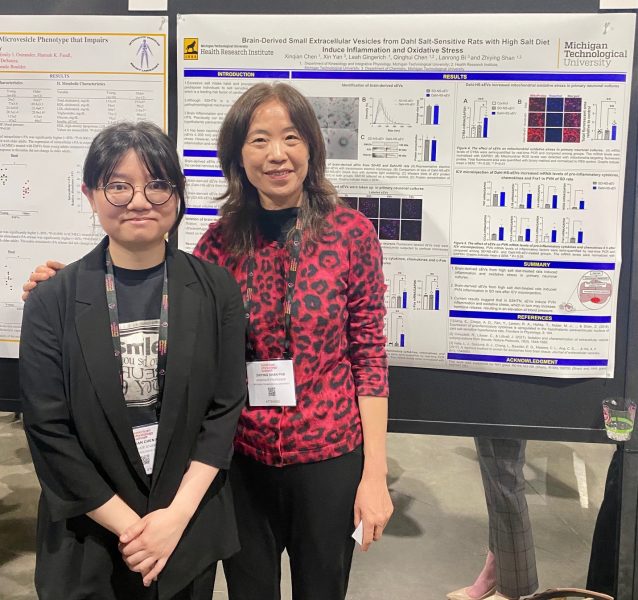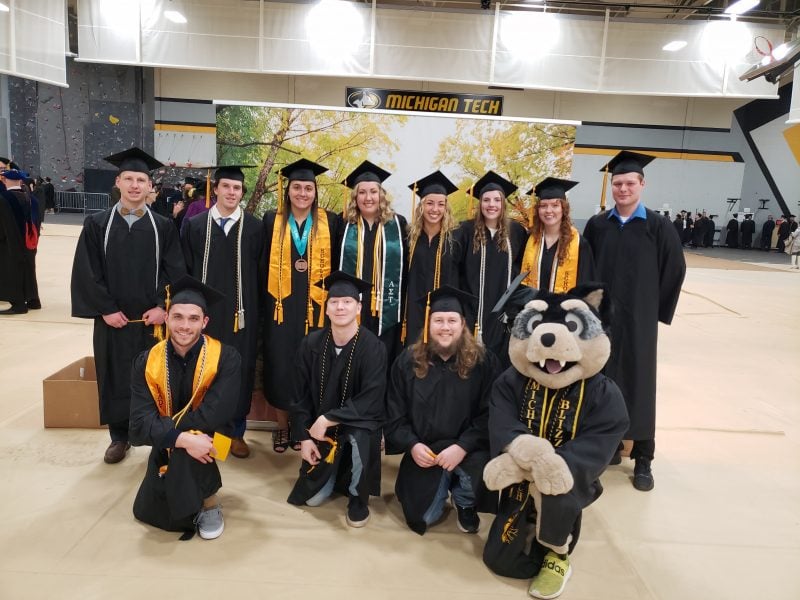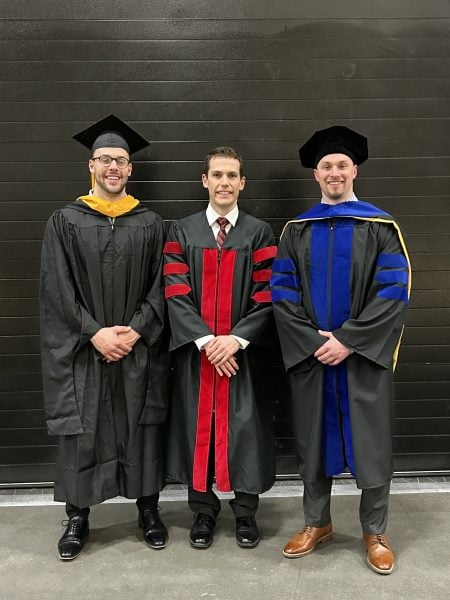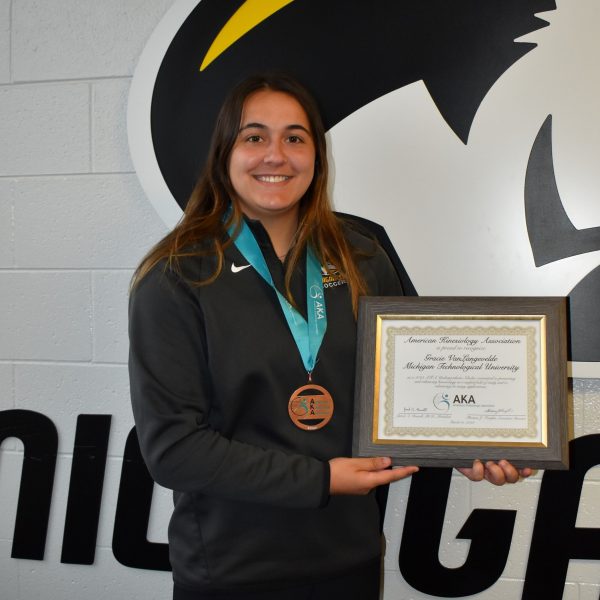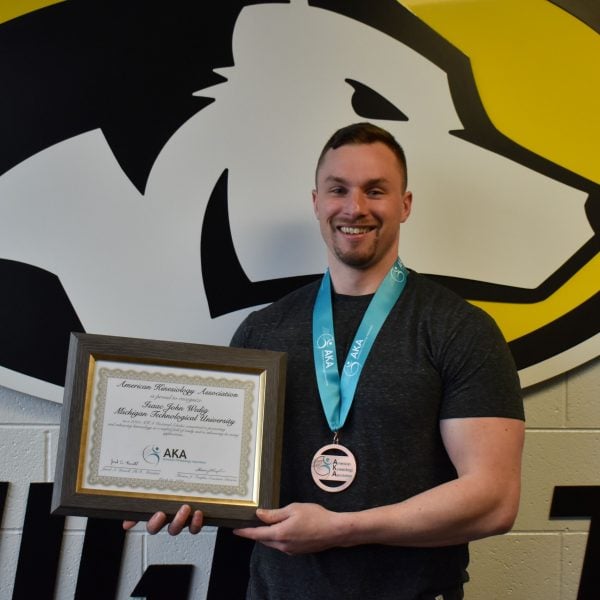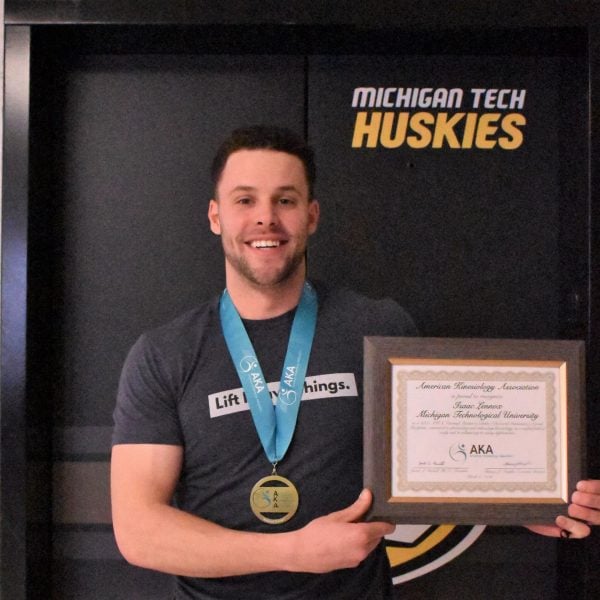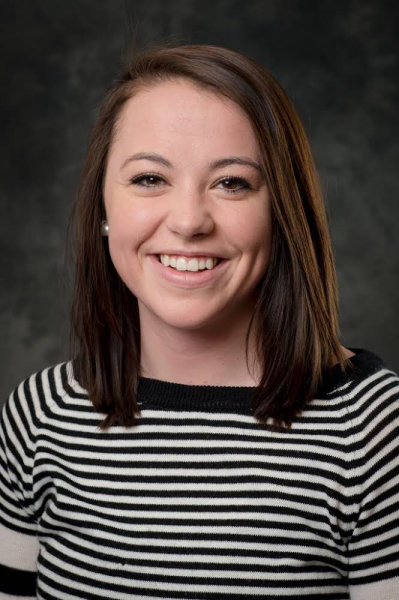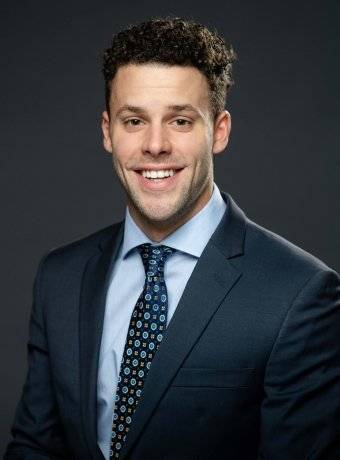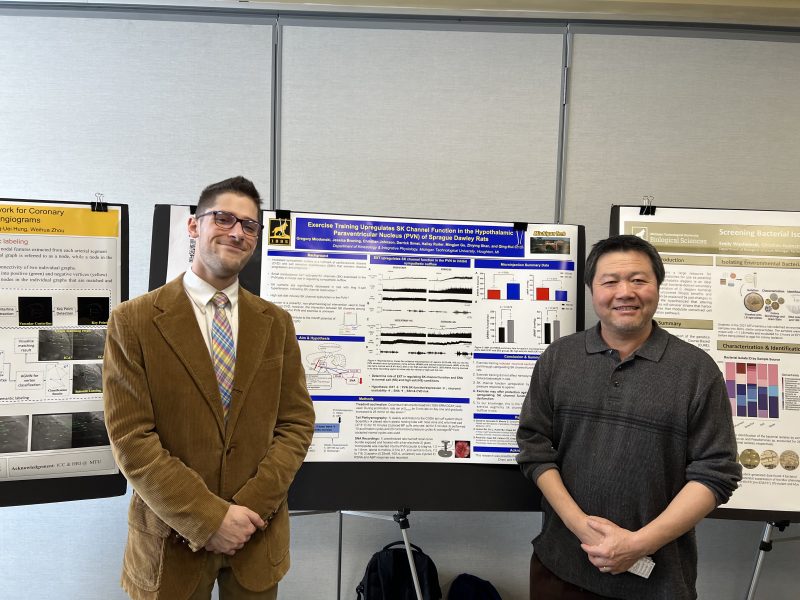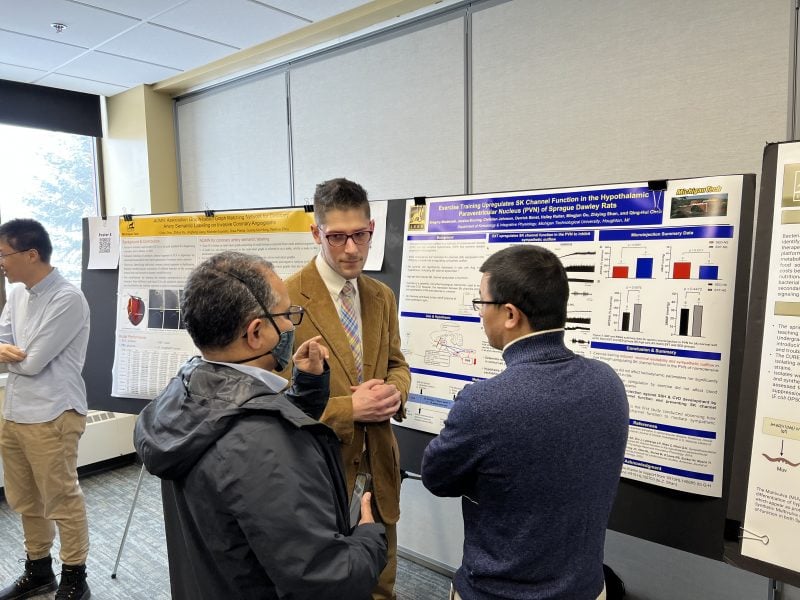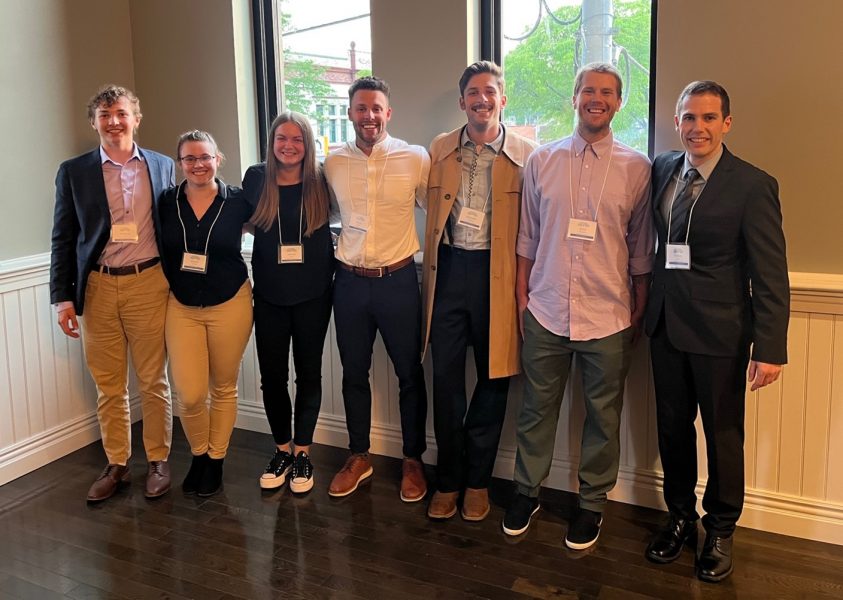
A group of Michigan Tech students and faculty attended the 10th Annual Meeting of the Michigan Physiological Society (MPS) on June 26 – 27th at Alma College. The presence of Michigan Tech was prominent as students and faculty from two departments gathered for this notable 10th anniversary of the meeting. Several graduate students from the Department of Kinesiology and Integrative Physiology (KIP), including Isaac Lennox and Abby Brooks, both master’s students, as well as Greg Miodonski and Kyle Wehmanen, both doctoral students, showcased their physiology-related research and outreach projects through captivating presentations. Joining them were undergraduate students Derrick Simet and Haley Marchese, and Dr. Robert Larson from the Department of Biological Sciences (BioSci), who also shared their research. Even more noteworthy, four of these students – Isaac, Greg, Haley, and Kyle – received recognition and awards for their outstanding presentations.
The first day of the meeting was marked by a keynote presentation by Dr. Pablo Ortiz from Henry Ford Hospital. He discussed the role of emerging research technologies that will lead to exciting discoveries in the field using fantastic examples from his own research involving kidney function. In the evening, there was a special presentation featuring the current and former presidents of the MPS. Among them was Dr. Steve Elmer, the current MPS president and faculty member from the KIP department at Michigan Tech, as well as former KIP faculty members and MPS presidents Dr. John Durocher and Dr. Jason Carter. The first day festivities concluded with an exhilarating physiology trivia quiz competition, where eight teams of students from universities around the state competed against each other, facing challenging physiology questions. The Michigan Tech trivia team (Abby, Derrick, Haley) represented the university well and certainly had a lot of fun!
The second day of the meeting brought another highlight, the captivating ‘Living History’ lecture delivered by Dr. Sue Barman, a respected colleague from Michigan State University and past president of the American Physiological Society. Dr. Barman shared her inspiring journey to success, recounting her experiences from a young girl to a distinguished professor. She also imparted valuable advice to aspiring students and professionals, emphasizing the importance of staying true to oneself and persevering in the face of adversity. There was also a great breakout session encouraging professional development with collaborative presentations on physiology careers in industry, teaching pedagogy with emerging artificial intelligence tools, and science policy in our governments. Finally, the students from Michigan Tech conducted a special edition of their UP & Moving workouts early in the morning, showcasing their ongoing initiative to promote physical activity on campus and within their community.
In summary, the 10th Annual Michigan Physiological Society meeting proved to be a resounding success for both Michigan Tech students and faculty members. The meeting provided a perfect blend of learning, networking, and fun for all attendees, leaving lasting memories. One of the students even had the unforgettable experience of crossing the Mackinaw Bridge for the first time and again a second time on the way home. Congratulations to all the student presenters who are already eagerly looking forward to the 11th annual meeting next year!
Finally, a special thank you to Dr. William Cooke and the Department of Kinesiology and Integrative Physiology for supporting the students with their trip, as well as serving as one of the major sponsors for the meeting. — Written by Kyle Wehmanen, PhD Student

